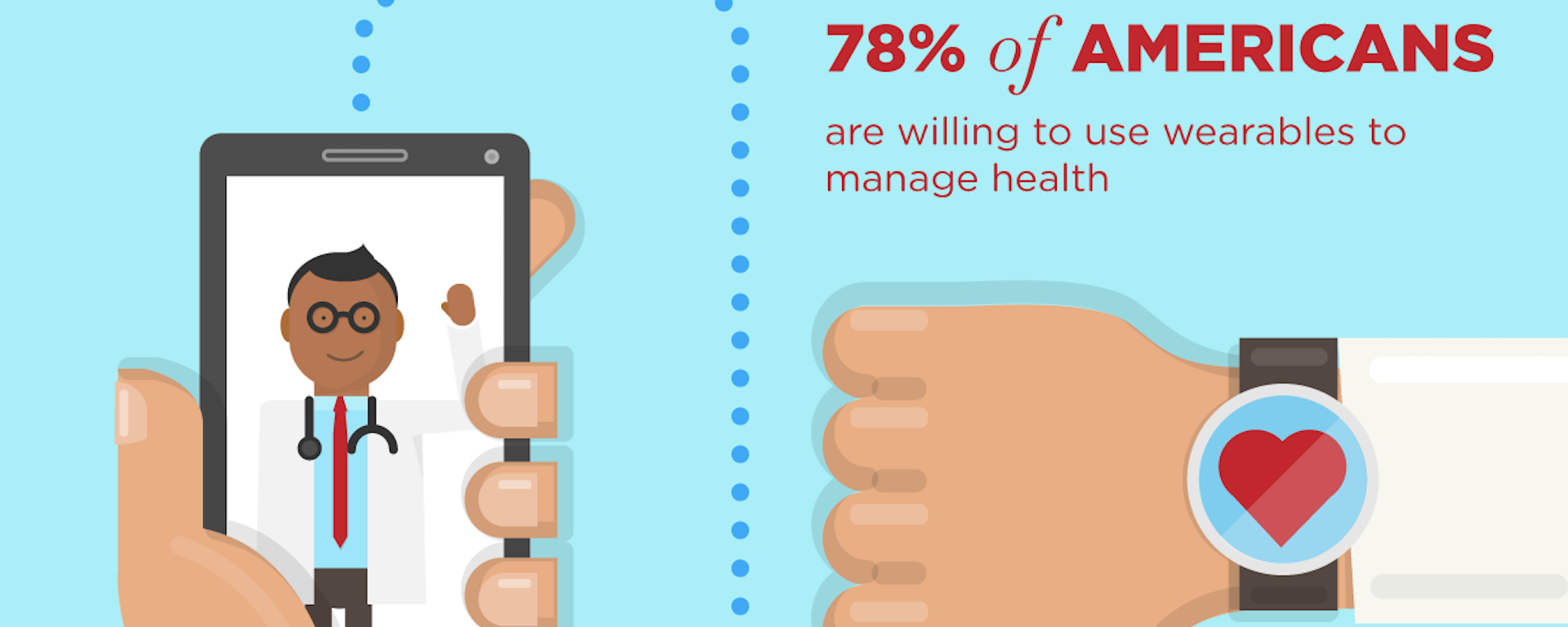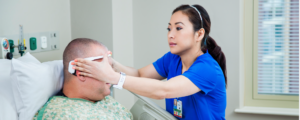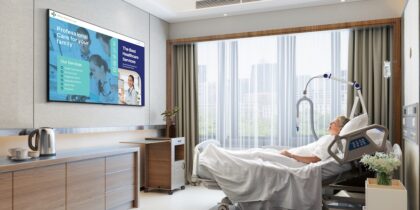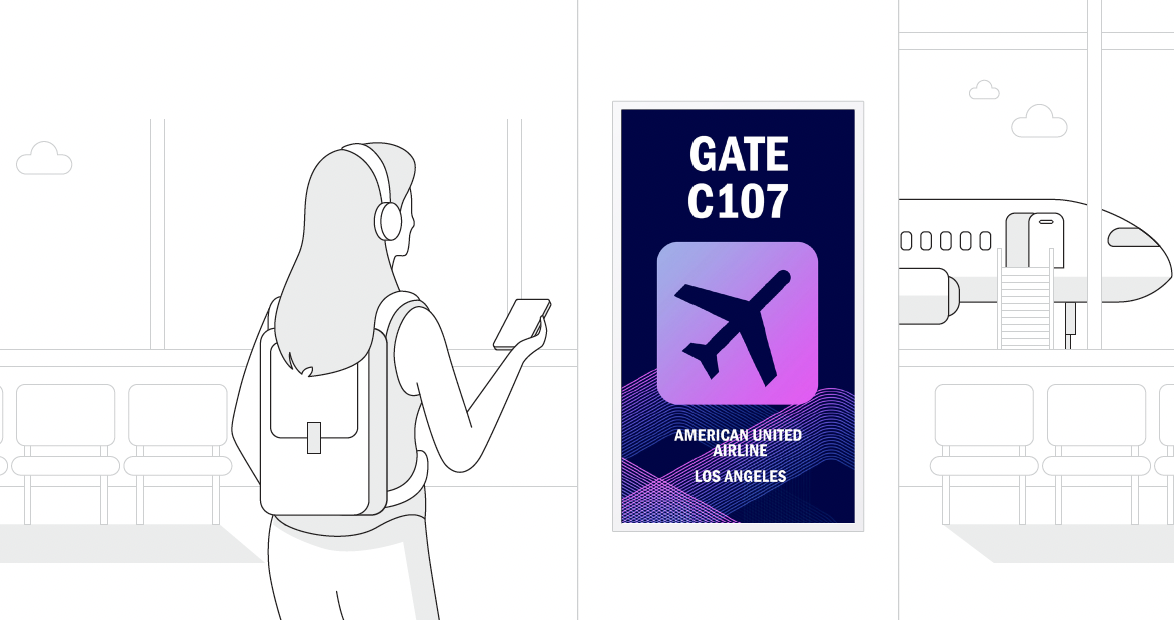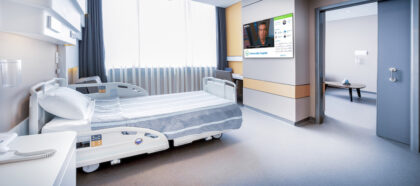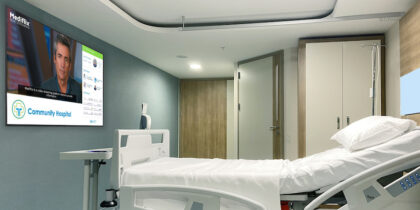In the not-so-distant past, patients had only one source for healthcare expertise — their personal physicians. They relied on doctors to monitor their symptoms, track changes in their health, manage their diseases and personalize their care. But in recent years, mobile technology and the Internet of Things (IoT) has changed all that.
Now, armed with wearables and mobile healthcare apps, individuals can monitor their own health data and get continuous guidance and information from the devices they carry with them every day.
But the availability of digital health tools is a double-edged sword for the medical industry. Patients are becoming more engaged in their own wellness and taking greater responsibility for staying healthy, which leads to better outcomes. On the other hand, as they rely more on these tools, are they relying less on the robust insights and expertise of medical professionals?
Consumers Embrace Digital Health in 2016
It’s not hard to understand the appeal of mobile healthcare apps, wearables and IoT medical devices. These tools are more convenient and less expensive than doctor’s visits, and they provide a continuous stream of information.
Mobile will be one of the top three trends reshaping the healthcare industry in 2016, according to PwC’s Health Research Institute’s annual report, which found that 32 percent of U.S. consumers have at least one health app on their mobile devices (up 16 percent since 2013).
Patient Pain Management Matters, Tablets Help
Read the case study to find out how tablets are helping distract patients from their pain. Download Now
The recent Makovsky/Kelton “Pulse of Online Health” survey featured on ITNOnline backs up these findings, indicating that almost two-thirds (66 percent) would use mobile healthcare apps to prevent and manage disease by:
-
Tracking diet/nutrition (47 percent)
-
Receiving medication reminders (46 percent)
-
Tracking symptoms (45 percent)
-
Tracking physical activity (44 percent)
Likewise, 79 percent would use a wearable device (like the Samsung Gear smartwatches) to:
-
Track physical activity (52 percent)
-
Track symptoms (45 percent)
-
Manage a personal health issue or condition (43 percent)
While this data can certainly help individuals and families get (and stay) healthier, it also provides an opportunity for richer interactions and bigger-picture health conversations with physicians.
The challenge: Physicians aren’t sure what to do with all this data.
Bringing Doctors Into the Data Loop
While consumer trust in mobile healthcare apps continues to grow, their confidence in physicians is at an all-time low.
As overburdened physicians now spend more time on administrative tasks than with patients, the doctor/patient relationship has begun to suffer. In fact, recent studies show that only 23 percent of Americans have “a great deal” of confidence in the healthcare system, and only 58 percent agree with the statement, “All things considered, doctors in [your country] can be trusted.”
One possible solution: Make patients feel like part of the healthcare team by leveraging the data they collect via mobile devices. PwC’s study shows that 88 percent of consumers are willing to share personal data with their doctor to find new treatments, which could create opportunities for richer conversations, and lead to more accurate diagnoses and more personalized care.
Yet, most healthcare providers do not have the IT infrastructure needed to effectively leverage mobile data.
As Public Health Institute’s Iana Simeonov told Forbes, physicians “are overwhelmed with all of the data being brought to them. It is difficult when you have 100 different patients coming to you with the physical print out of their data from their wearable or want you to look at their notes and app. There’s simply not much the clinicians can do other than to encourage them to keep doing it themselves.”
Forbes also spoke with Dr. Lawrence Kosinski, an Illinois-based gastroenterologist who spent three years developing a standalone, cloud-based algorithm to manage mobile data from patients with chronic gastrointestinal disease. This system has improved patient outcomes, reduced hospital visits, and given Dr. Kosinski a better understanding of population health management.
However, developing the platform required time and resources that many physicians don’t have. The problem, Kosinski says, is that existing electronic medical record systems (EMRs) aren’t set up to leverage data from wearables and personal apps. “It became so cumbersome to try and use a patient portal built into the EMR, so we developed a freestanding application platform,” he explains. “The architecture of just about all EMRs requires you to log in one patient file at a time, but this is population health.”
So, what will it take to bring doctors into the healthcare app ecosystem? Healthcare providers and digital partners must create IT infrastructures that enable physicians to easily collect, analyze and share mobile data. Otherwise, doctors will continue basing treatment plans on one set of data, while patients diagnose and manage their health based on another. As the data gap grows, so will the communication gap between doctors and patients, and that prognosis doesn’t benefit anyone.
